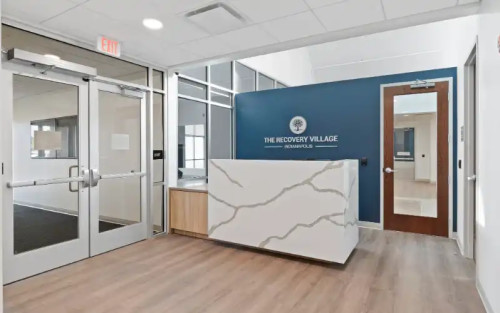
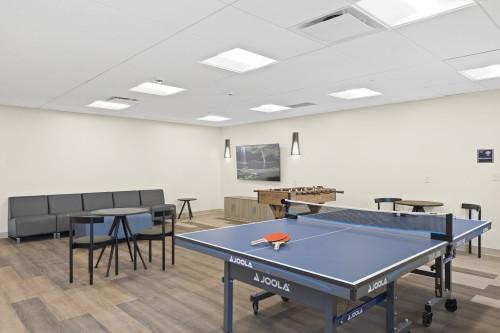
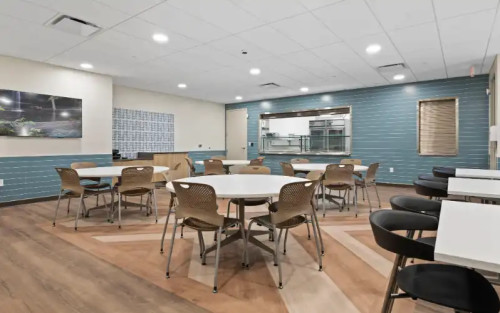



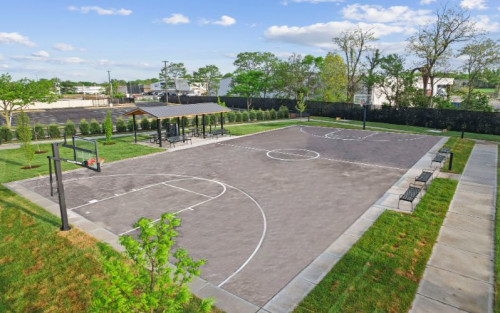
The Recovery Village Indianapolis
Verified Center
This provider's information has been quality-checked by Recovery.com's Research Team for accuracy and completeness, including center verification through appropriate third-party organizations.
Treatment Focus
This center treats substance use disorders and co-occurring mental health conditions. Your treatment plan addresses each condition at once with personalized, compassionate care for comprehensive healing.
Primary Level of Care
Offering intensive care with 24/7 monitoring, residential treatment is typically 30 days and can cover multiple levels of care. Length can range from 14 to 90 days typically.
Treatment Focus
This center treats substance use disorders and co-occurring mental health conditions. Your treatment plan addresses each condition at once with personalized, compassionate care for comprehensive healing.
Primary Level of Care
Offering intensive care with 24/7 monitoring, residential treatment is typically 30 days and can cover multiple levels of care. Length can range from 14 to 90 days typically.
Provider's Policy
The Recovery Village Indianapolis works with a variety of insurance programs which cover 100% of treatment programs. These include: BCBS, Aetna, Cigna, United and more. Our free, confidential benefit verification is quick and you will be notified within 5 minutes of your results. Once verified, we can admit you on the same day.
The Recovery Village Indianapolis
The Recovery Village Indianapolis
About The Recovery Village Indianapolis
The Recovery Village provides compassionate, physician-led care for addiction in Indianapolis. Its evidence-based programs consider clients’ physical, mental, emotional, and social needs and create a personalized treatment plan. The Recovery Village offers a full continuum of care, including medical detox, residential treatment, day treatment (partial hospitalization), and intensive outpatient care. Its streamlined process supports expedited admissions, providing the option for same-day or next-day entry into its treatment facilities.
Medical Detox and Medication-Assisted Treatment
Before beginning medical detox, The Recovery Village conducts a thorough assessment of each client’s substance use, physical and mental health, and any co-occurring conditions to create a tailored treatment plan. Clients undergo detox in comfortable, private rooms with around-the-clock medical supervision. The Recovery Village provides medication-assisted treatment as needed for alcohol, opioids, and more to alleviate withdrawal symptoms as needed. Nutritious, chef-prepared meals support overall health. Clients may start individual counseling check-ins with a licensed therapist during this time.
Dual Diagnosis Programs
The Recovery Village treats addiction and co-occurring mental health conditions like anxiety or depression. Their residential, day treatment, and intensive outpatient programs focused on trauma-informed, evidence-based care. Therapy is delivered in 1:1, group, and family settings. The Recovery Village uses an array of therapies to treat the co-occurring conditions at their source, including cognitive behavioral therapy (CBT), dialectical behavior therapy (DBT), and motivational interviewing (MI). Clients can choose to participate in 12-Step meetings or alternative SMART Recovery groups.
Family Program and Aftercare
In The Recovery Village’s family program, loved ones can learn more about:
- Communication skills
- Education regarding the addiction
- Resolving conflict
- Healthy behaviors and coping skills
- How to establish healthy boundaries
- Relapse prevention planning
- Helping the family make positive changes
The Recovery Village has a robust aftercare program to support lasting recovery. They provide relapse prevention planning and an alumni support network. The Recovery Village can provide medical and therapeutic referrals, local support group recommendations, and sober living recommendations.

Highlights from the Center
Highlights
These highlights are provided by and paid for by the center.
Insurance Accepted
Customized Treatment Plans
Co-Occurring Disorders Treatment
Medically Assisted Detox
Center Overview
Treatment Focus
This center treats substance use disorders and co-occurring mental health conditions. Your treatment plan addresses each condition at once with personalized, compassionate care for comprehensive healing.
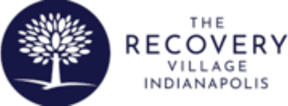
Insurance Accepted
Cash Pay Rates
Estimated Cash Pay Rate
Center pricing can vary based on program and length of stay. Contact the center for more information. Recovery.com strives for price transparency so you can make an informed decision.
Meet Your Care Team

Leah Scott
Executive Director
MBA, COTA

Brittany Hall
Clinical Director
MA, LMHC, ATR-BC

Teri Meads
Director of Nursing
RN, MSN, ASN

Tammy Neideffer
Community Outreach Director
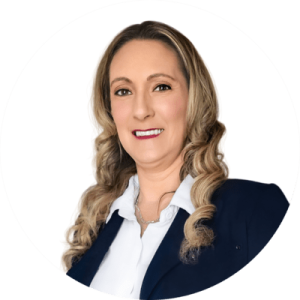
Jennifer Purslow
Community Outreach Associate
M.S.
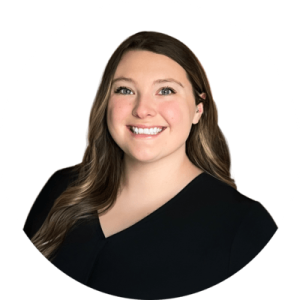
Taylor Lucid
Community Outreach Associate

Andrew M. Miller
Medical Director
MD


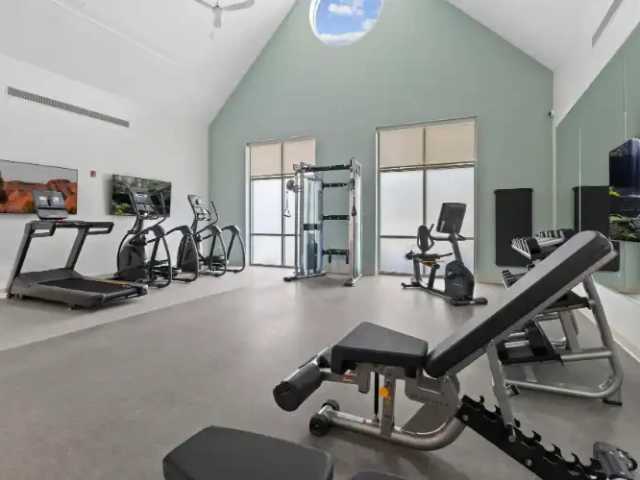

Levels of Care









Your Care Options
Specializations
Alcohol
Using alcohol as a coping mechanism, or drinking excessively throughout the week, signals an alcohol use disorder.
Detox
Detox fully and safely removes toxic substances from the body, allowing the next steps in treatment to begin with a clean slate.
Benzodiazepines
Benzodiazepines are prescribed to treat anxiety and sleep issues. They are highly habit forming, and their abuse can cause mood changes and poor judgement.
Co-Occurring Disorders
A person with multiple mental health diagnoses, such as addiction and depression, has co-occurring disorders also called dual diagnosis.
Drug Addiction
Drug addiction is the excessive and repetitive use of substances, despite harmful consequences to a person's life, health, and relationships.
Opioids
Opioids produce pain-relief and euphoria, which can lead to addiction. This class of drugs includes prescribed medication and the illegal drug heroin.
Residential
In a residential rehab program, patients live onsite, with access to daily treatment and 24-hour care. An average stay is 30-90 days.
Who We Treat
Older Adults
Addiction and mental health treatment caters to adults 55+ and the age-specific challenges that can come with recovery, wellness, and overall happiness.
Young Adults
Emerging adults ages 18-25 receive treatment catered to the unique challenges of early adulthood, like college, risky behaviors, and vocational struggles.
LGBTQ+
Addiction and mental illnesses in the LGBTQ+ community must be treated with an affirming, safe, and relevant approach, which many centers provide.
Men and Women
Men and women attend treatment for addiction in a co-ed setting, going to therapy groups together to share experiences, struggles, and successes.
Veterans
Patients who completed active military duty receive specialized treatment focused on trauma, grief, loss, and finding a new work-life balance.
Approaches
Evidence-Based
A combination of scientifically rooted therapies and treatments make up evidence-based care, defined by their measured and proven results.
Holistic
A non-medicinal, wellness-focused approach that aims to align the mind, body, and spirit for deep and lasting healing.
Individual Treatment
Individual care meets the needs of each patient, using personalized treatment to provide them the most relevant care and greatest chance of success.
Therapies
1-on-1 Counseling
Patient and therapist meet 1-on-1 to work through difficult emotions and behavioral challenges in a personal, private setting.
Online Therapy
Patients can connect with a therapist via videochat, messaging, email, or phone. Remote therapy makes treatment more accessible.
Art Therapy
Visual art invites patients to examine the emotions within their work, focusing on the process of creativity and its gentle therapeutic power.
Family Therapy
Family therapy addresses group dynamics within a family system, with a focus on improving communication and interrupting unhealthy relationship patterns.
Medication-Assisted Treatment
Combined with behavioral therapy, prescribed medications can enhance treatment by relieving withdrawal symptoms and focus patients on their recovery.
Twelve Step Facilitation
12-Step groups offer a framework for addiction recovery. Members commit to a higher power, recognize their issues, and support each other in the healing process.
Conditions We Treat
Schizophrenia
Schizophrenia is a serious mental health condition that causes hallucinations, delusions, and disordered thinking.
ADHD, ADD
ADHD is a common mental health condition caused by dopamine imbalance. Common symptoms include inattention, hyperactivitiy, and impulsivity.
Anxiety
Anxiety is a common mental health condition that can include excessive worry, panic attacks, physical tension, and increased blood pressure.
Bipolar
This mental health condition is characterized by extreme mood swings between depression, mania, and remission.
Depression
Symptoms of depression may include fatigue, a sense of numbness, and loss of interest in activities. This condition can range from mild to severe.
Obsessive Compulsive Disorder (OCD)
OCD is characterized by intrusive and distressing thoughts that drive repetitive behaviors. This pattern disrupts daily life and relationships.
Post Traumatic Stress Disorder
PTSD is a long-term mental health issue caused by a disturbing event or events. Symptoms include anxiety, dissociation, flashbacks, and intrusive thoughts.
Trauma
Some traumatic events are so disturbing that they cause long-term mental health problems. Those ongoing issues can also be referred to as "trauma."
Substances We Treat
Alcohol
Using alcohol as a coping mechanism, or drinking excessively throughout the week, signals an alcohol use disorder.
Benzodiazepines
Benzodiazepines are prescribed to treat anxiety and sleep issues. They are highly habit forming, and their abuse can cause mood changes and poor judgement.
Co-Occurring Disorders
A person with multiple mental health diagnoses, such as addiction and depression, has co-occurring disorders also called dual diagnosis.
Cocaine
Cocaine is a stimulant with euphoric effects. Agitation, muscle ticks, psychosis, and heart issues are common symptoms of cocaine abuse.
Drug Addiction
Drug addiction is the excessive and repetitive use of substances, despite harmful consequences to a person's life, health, and relationships.
Heroin
Heroin is a highly addictive and illegal opioid. It can cause insomnia, collapsed veins, heart issues, and additional mental health issues.
Psychedelics
Hallucinogenic drugs—like LSD—cause euphoria and increased sensory experiences. When abused, they can lead to depression and psychosis.
Methamphetamine
Methamphetamine, or meth, increases energy, agitation, and paranoia. Long-term use can result in severe physical and mental health issues.
Languages
Aftercare
Care Designed for Your Needs
Personal Amenities
Amenities
Special Considerations
Flexible technology policies
Centers with flexible technology policies allow professionals to stay in touch with work and give patients a greater sense of connection and normalcy.
First Responders Program
Paramedics, police officers, firefighters, and others join in a specific First Responders program, usually focused on trauma, grief, and work-life balance.
Activities
Yoga
Yoga is both a physical and spiritual practice. It includes a flow of movement, breathing techniques, and meditation.






